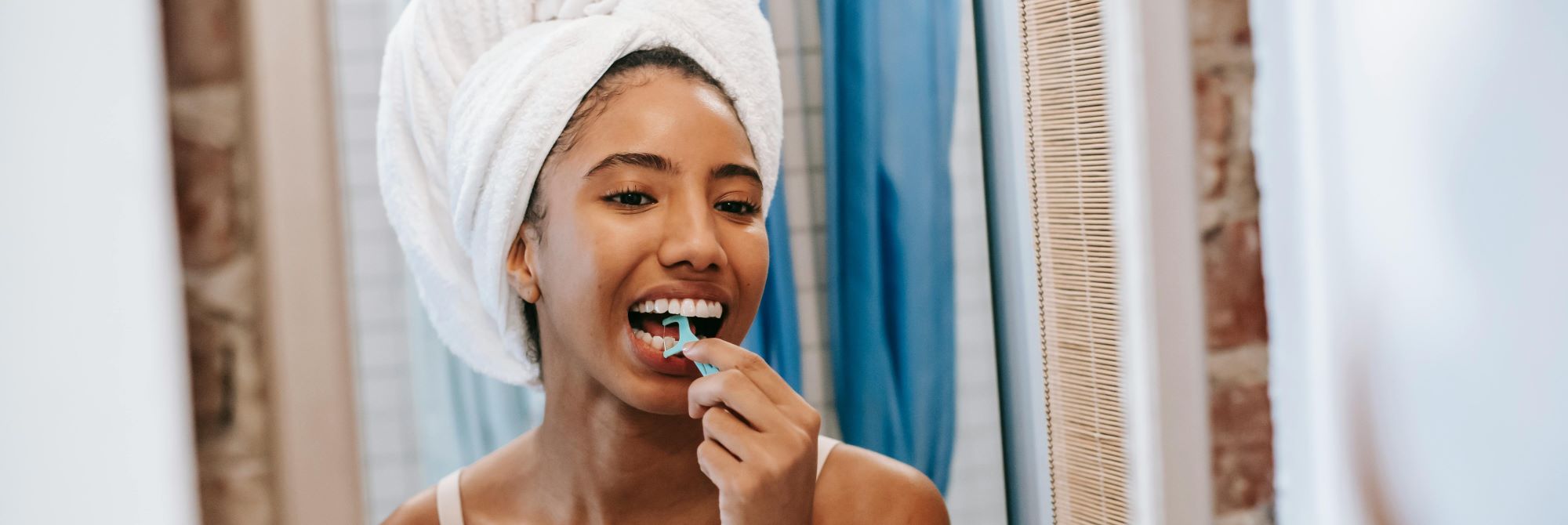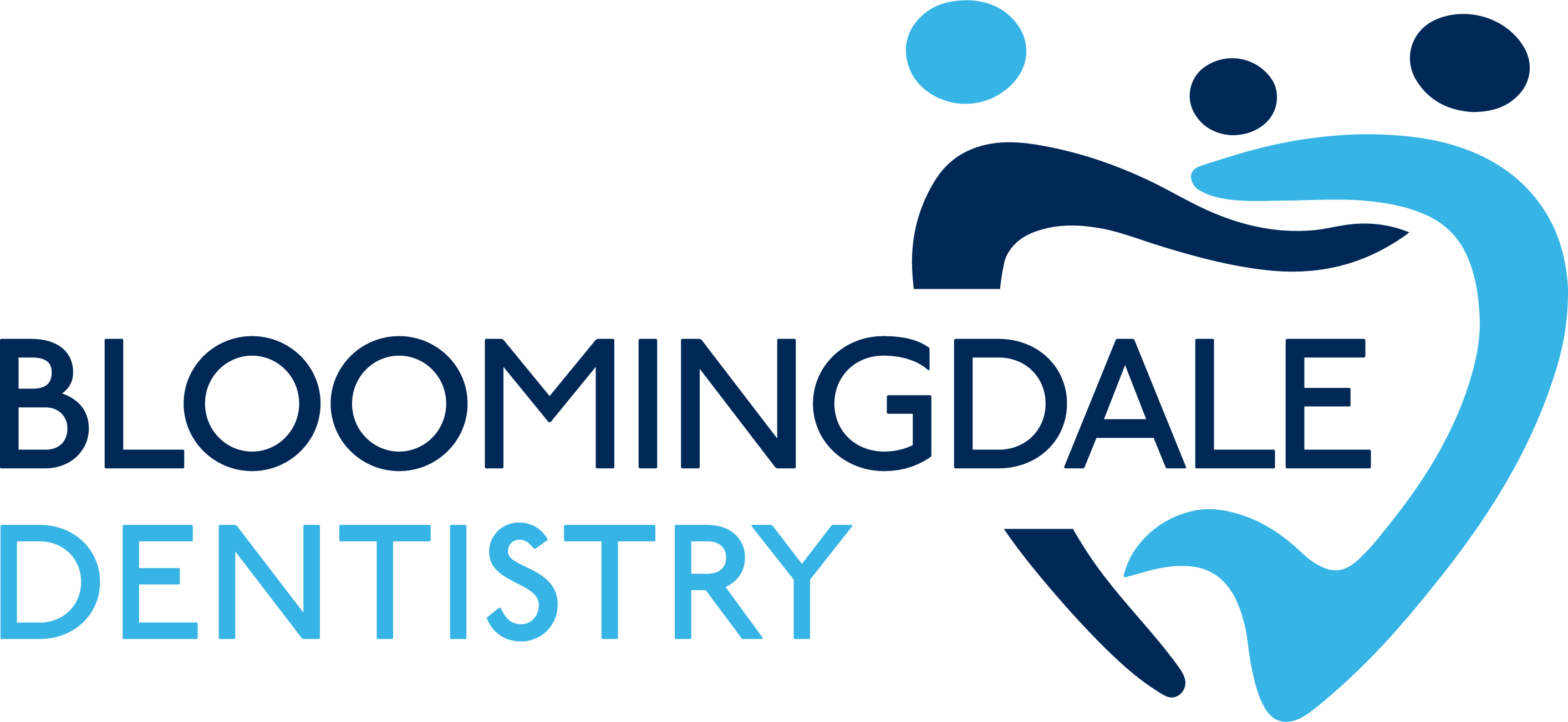
23 Apr 5 Oral Habits You Should Start
Your mouth does more than chew food and flash a smile. It has a big impact on your overall health. Most people brush, maybe floss, and call it a day. But a few easy oral habits can make a huge difference. If you want better breath, fewer cavities, and long-term health, these five oral habits are worth starting today.
Brush and Floss
Have you ever thought about your mouth as a microbiome? Your mouth holds over 700 kinds of bacteria. Some are helpful, others not so much. Good oral habits keep that balance healthy. Why does that matter? Because bad bacteria in your mouth don’t stay put. They can travel into your bloodstream. That raises your risk for diseases like heart issues, diabetes, and even Alzheimer’s. One of the best ways to keep your oral microbiome balanced? Brush and floss daily and consistently!
Brushing twice a day helps reduce plaque and food buildup. It also stops harmful bacteria from taking over. Flossing removes debris your toothbrush can’t reach. If you skip it, you’re letting bacteria hang out between teeth all day. When bacteria build up, it can cause inflammation. That inflammation doesn’t stop at your gums, it affects your entire body. So yes, brushing and flossing help your teeth. But they also support your immune system and reduce disease risks. It’s not just hygiene, it’s health maintenance.
Use Fluoride and a Soft-Bristled Brush
Not all toothpaste is created equal. You want fluoride in yours every single time. Fluoride helps your enamel stay strong. It makes your teeth more resistant to acids and cavities. Without it, your teeth are vulnerable. Many people use medium or hard-bristle brushes. Hard bristles might feel more thorough, but they wear down enamel and damage gums. Stick with soft bristles instead. Technique also matters. Don’t just scrub randomly. Angle the brush 45 degrees toward your gums. Use gentle, circular motions. Avoid aggressive brushing. It won’t clean better, it’ll just cause gum recession and tooth sensitivity. Brushing should last two full minutes. Most people brush for less than a minute. Setting a timer could help!
Floss Daily
We all know we should floss. But most people skip it, or only do it before the dentist visits. That’s a big mistake! Flossing is crucial not just for clean teeth but also for lowering inflammation. Inflammation in the mouth leads to gum disease. When plaque builds up between teeth, bacteria thrive. This causes your immune system to kick in and trigger inflammation. Chronic gum inflammation, called gingivitis, can escalate to periodontitis. That’s when gums pull away from the teeth. Bone loss can follow.
Periodontitis has been linked to serious conditions like diabetes, stroke, and heart disease. Flossing breaks up plaque and removes debris your toothbrush misses. It’s your frontline defense against these problems. The key is consistency. Once a day is enough. Do it at night so your mouth stays cleaner while you sleep. And technique matters here, too. Don’t just pop floss between your teeth. Curve it around each tooth and slide it gently up and down. It takes a minute, maybe two. But it can save you years of trouble.
Use Mouthwash
Mouthwash isn’t just about minty breath. Used right, it’s a powerful way to reduce bacteria and boost oral hygiene. Brushing and flossing clean most of your mouth. But they don’t reach everything. Mouthwash helps fill in the gaps. Antimicrobial mouthwashes reduce plaque, kill lingering bacteria, and freshen breath. Some also reduce gum inflammation and fight gingivitis. To use it right, swish for 30 seconds, twice a day. Don’t eat or drink for 30 minutes afterward. Make sure your mouthwash contains ingredients like chlorhexidine, cetylpyridinium chloride, or essential oils like thymol. Don’t use mouthwash as a shortcut. It’s not a substitute for brushing or flossing. It’s a complement. Think of it as backup support, like a cleanup crew after brushing and flossing, that does the heavy lifting. Use it regularly, and you’ll notice fresher breath and healthier gums.
Clean Your Tongue
Most people never think about cleaning their tongue. But your tongue can be a hotspot for bacteria. Those white or yellow coatings on your tongue? That’s often a mix of dead cells, bacteria, and food debris. If left alone, it leads to bad breath and increases the risk of tooth decay and gum problems. The fix? Use your toothbrush or a tongue scraper. Scrape or brush gently from back to front once a day. Do it after brushing your teeth, before rinsing. It takes ten seconds and removes loads of bacteria. Tongue cleaning helps improve taste, reduces odor, and keeps your mouth healthier overall. A clean tongue helps prevent harmful bacteria from recolonizing your teeth and gums. Once you get into the habit, you won’t go back. Your mouth feels cleaner, and your breath smells noticeably better.
Conclusion
These five oral habits are simple but powerful. You don’t need fancy tools or expensive products, just consistency. Your mouth is the gateway to your body. Treat it right, and the rest of your body benefits too. Bloomingdale Dentistry is here to help. Schedule an appointment with us today – our excellent dentists can get you on track to achieve the great oral health you deserve.

About Our Team
Our team at Bloomingdale Dentistry has over 40 years of experience in the field of dentistry. We have a reputation of excellence in patient treatment and care.
To learn more about our team, visit our team page.
